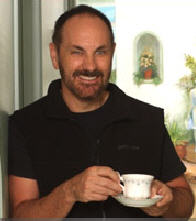Chuck McKay shares with us a ton of excellent advice:
How to Instantly Make a Poor Customer Impression
Jun 8th, 2011 | | Category: Credibility, Critical Non-Essentials, Fresh CatchRoger met me at a local family restaurant. With the ease of old friends not having seen each other for months, we slipped into a “catching up” conversation over breakfast.
I casually asked, “How’s your food, Rog?” Roger paused, considered, and told me, “It’s quite good.”
I pointed to the ceiling fan roughly ten feet to my left, and said, “Notice the dust build-up on the fan?” Roger confessed he hadn’t. I directed his attention to the rear door, and asked, “Can you see the cobwebs on the Exit sign from here?” Roger admitted that he could. I pointed out the filthy black build up on the air return vent next to the kitchen.
Again I asked, “How’s the food taste now, Roger?” He replied, “Not as good.”
I wanted to know why. Roger looked at me, and disappointedly told me, “If the front of the house is this filthy, I can only imagine how disgusting the kitchen must be.”
Critical Non-Essentials
One wouldn’t think restaurants have much to do with dentistry, but there is a commonality.
People don’t have any specific knowledge as to whether the practitioner they see is any good at dentistry. They aren’t qualified to judge his education, experience, or even the quality of his fillings.
But, they do know how to recognize that the florescent lights in his hallway are flickering, and that he’s out of paper towels in the men’s room.
Australian Dentist, Paddi Lund, named these little signs that your business is properly attended to as “Critical Non-Essentials.” They are items which have no effect on the service one provides, but have tremendous influence on the opinions of customers about the quality of the work performed.
The florescent tubes and paper towels are non-essential to the practice of dentistry. They are critical to patient assessment of the dentist’s competence.
So the patients conclude a dentist who won’t keep his practice equipped and stocked with the basics can’t be a very good business person. By extension, he’s probably not a very good dentist, either.
Clean return air vents are non-essential to food service. They are critical to the customer’s assessment of food quality.
Vacuumed carpets and tidy shelves are non-essential to fabric sales. They are critical to customer assessment of fabric quality.
Interestingly, it isn’t just the critical non-essentials that form people’s opinions of our businesses.
One Man’s “Untidy” is Another Man’s “Creative.”
We expect novelists to work in cluttered offices. Neat, tidy, everything-in-its-place organization would be out of character. But an attorney working in a disorganized, untidy office projects incompetence.
And florescent lights hanging by chains from the ceiling are perfectly appropriate for a warehouse shopping club, but woefully inadequate for a jewelery.
In general, softer surfaces, subdued colors, wall treatments, indirect lighting, and less noisy showrooms prepare shoppers for higher prices. They also help customers to “rank” us within our professions. And then they compare us to our competitors.
A carpeted store with wallpaper, indirect lights, and soft music will project better quality merchandise than a store with cement floors, painted cinderblock walls, and loud echoes of forklifts.
But, if that second store is impeccably clean, while the first store’s windows are grimy and restroom trash baskets are overflowing, you can predict where people will prefer to shop.
Consciously or not, people judge our competence both by their expectations of our profession, and by those critical non-essentials.
If those non-essentials are so important, why doesn’t everyone pay closer attention to them? Mostly because the change from excellent to unacceptable is so gradual.
And when businesses are running as lean as most are today, there simply isn’t anyone assigned the responsibility of checking the volume of the background music or the dates on the magazines in the waiting room.
We Need Systems
If each business had a list of assignments that was checked before they opened each day, and periodically throughout the day, it wouldn’t much matter who was on duty, would it? The work of the company would be done, and those non-essentials which contribute so much to each business’ image would be attended to as well.
If you don’t have a checklist, create one. Do it today.
When I’m evaluating a new client (and his competitors) I use a proprietary list of over 100 points at which customers come into contact with the company. Mine is organized by our five senses.
What contributes to imperfections customers could see, hear, or smell? What will they touch? What can they taste?
What will contribute to your customers first impressions? Their last? Does their experience end at check out? In the parking lot? Or when you follow-up after the sale?
Your checklist may resemble that of other businesses, but it won’t be identical. How could it?
What About Customer Referrals?
Even if you never “wow” a customer, over time, what do you think will happen if you never disappoint?
Does your company use such a system? Join the conversation, and tell us about it.
If not, I’d suggest you start one today. It makes your job much easier when you’re fishing for customers.
Your Guide,
Chuck McKay
 Your Fishing for Customers guide, Chuck McKay, gets people to buy more of what you sell.
Your Fishing for Customers guide, Chuck McKay, gets people to buy more of what you sell.
Questions about identifying critical non-essentials in your business may be directed to ChuckMcKay@ChuckMcKayOnLine.com. Or call Chuck at 304-208-7654.
Sphere: Related Content














No comments:
Post a Comment